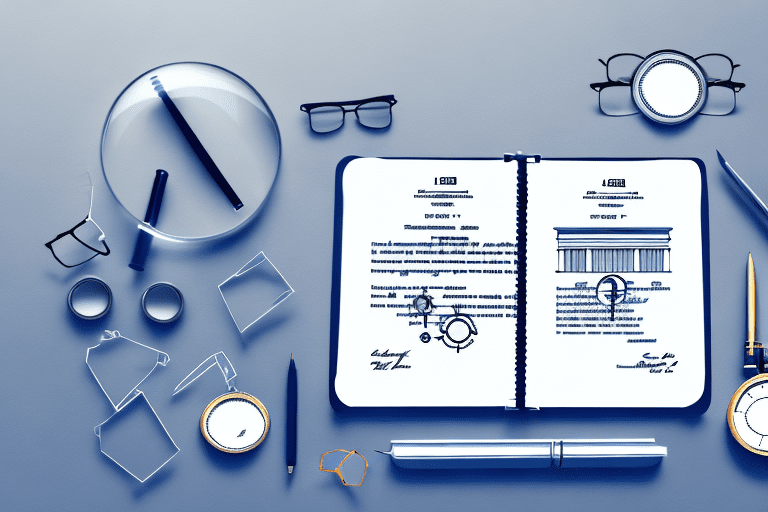Preparing for the patent bar exam is a crucial step for individuals aspiring to become registered patent attorneys or agents. The exam tests a candidate’s knowledge of patent laws, rules, and procedures, as well as their ability to analyze and apply the principles of patent examination. To excel in the exam, it is essential to choose the best patent bar prep course that adequately prepares candidates for the rigorous test.
Understanding the Patent Bar Exam
The patent bar exam is a comprehensive assessment administered by the United States Patent and Trademark Office (USPTO). Passing this exam is a prerequisite to becoming a registered patent practitioner. The exam is designed to evaluate a candidate’s understanding of patent law, rules, and practices.
When it comes to intellectual property, patents play a crucial role in protecting inventions and innovations. The patent bar exam serves as a gateway for individuals who aspire to specialize in patent law and represent clients before the USPTO. This exam is not only a test of knowledge but also a testament to a candidate’s ability to navigate the complex world of patents.
The Importance of the Patent Bar Exam
Successfully passing the patent bar exam is essential for anyone looking to practice patent law before the USPTO. Attorneys and agents who pass the exam can represent clients in patent matters, such as preparing and prosecuting patent applications, conducting patent searches, and providing legal advice on patent-related issues.
Being a registered patent practitioner opens up a world of opportunities. It allows individuals to work closely with inventors, scientists, and engineers to protect their inventions and ensure they receive the recognition and legal rights they deserve. Patent practitioners also play a vital role in promoting innovation by helping inventors secure patents and navigate the intricacies of the patent system.
Structure of the Patent Bar Exam
The patent bar exam consists of multiple-choice questions that assess a candidate’s knowledge across various topics, including patentability requirements, patent prosecution, post-grant proceedings, and ethics. The exam is divided into two sections: the morning session and the afternoon session, each lasting three hours.
The morning session typically covers topics related to patentability requirements and patent prosecution. Candidates are tested on their understanding of the criteria for patent eligibility, novelty, non-obviousness, and enablement. They must also demonstrate their knowledge of the patent application process, including drafting claims, responding to office actions, and conducting interviews with patent examiners.
In the afternoon session, the focus shifts to post-grant proceedings and ethics. Candidates are expected to have a solid grasp of the procedures involved in challenging the validity of a patent, such as inter partes review and post-grant review. Additionally, they must exhibit a thorough understanding of the ethical obligations and responsibilities that come with practicing patent law.
Preparing for the patent bar exam requires a comprehensive study plan. Candidates must dedicate countless hours to reviewing patent laws, regulations, and case precedents. They must also stay up to date with the latest developments in patent law, as the field is constantly evolving. Many aspiring patent practitioners enroll in specialized courses or join study groups to enhance their understanding of the subject matter and improve their chances of success.
Ultimately, passing the patent bar exam is a significant achievement that opens doors to a rewarding career in patent law. It not only validates a candidate’s knowledge and expertise but also serves as a testament to their commitment to upholding the principles of intellectual property protection.
Key Features of an Effective Patent Bar Prep Course
Choosing the right patent bar prep course is crucial for a thorough and efficient study process. Here are some key features to look for in an effective prep course:
Comprehensive Coverage of Topics
An ideal prep course should cover all essential topics tested in the exam and provide in-depth explanations of key concepts. It should offer comprehensive study materials that are structured and organized for easy understanding and retention.
For example, a good prep course may include detailed modules on patent law, patent prosecution, and patent litigation. These modules would delve into various subtopics, such as patentability requirements, patent infringement, and patent office procedures. Each subtopic would be explained thoroughly, with real-life examples and case studies to enhance understanding.
In addition to textual explanations, the course may also incorporate visual aids, such as diagrams and flowcharts, to help learners grasp complex concepts more easily. These visual representations can make the learning process more engaging and memorable.
Practice Questions and Mock Exams
A good prep course should provide ample opportunities for candidates to practice answering exam-like questions. Practice questions and mock exams help familiarize candidates with the format and difficulty level of the actual test, allowing for better preparation and confidence-building.
For instance, a comprehensive prep course may offer a vast question bank with hundreds or even thousands of practice questions. These questions would cover a wide range of topics and difficulty levels, ensuring that candidates are well-prepared for any question that may arise on the exam.
In addition to practice questions, the course may also include timed mock exams that simulate the actual testing conditions. This allows candidates to experience the pressure and time constraints they will face during the real exam, helping them develop effective time management strategies.
Expert Guidance and Support
Access to experienced patent practitioners and subject matter experts is invaluable during the preparation process. A reputable prep course should offer expert guidance and support, including avenues for candidate inquiries and clarification of complex concepts.
For example, the course may provide access to a team of patent attorneys who have extensive experience in the field. These experts can offer valuable insights and practical tips based on their real-world experiences, helping candidates gain a deeper understanding of the subject matter.
The prep course may also include interactive elements, such as live webinars or discussion forums, where candidates can directly interact with the instructors and fellow learners. This fosters a collaborative learning environment and allows for the exchange of ideas and clarification of doubts.
Furthermore, the course may offer personalized feedback on practice exams and assignments, highlighting areas of improvement and providing tailored study recommendations. This individualized attention can greatly enhance the learning experience and help candidates focus on their specific weaknesses.
In conclusion, an effective patent bar prep course should provide comprehensive coverage of topics, ample practice opportunities, and expert guidance and support. By choosing a prep course that incorporates these key features, candidates can maximize their chances of success in the patent bar exam.
Top Patent Bar Prep Courses
With numerous patent bar prep courses available, it is important to identify leading options that offer comprehensive coverage and strategic preparation. Here are some of the top patent bar prep courses to consider:
Overview of Leading Prep Course
1. Wysebridge Patent Bar Review: This course provides comprehensive study materials, including video lectures, practice questions, and exam simulations. It offers a structured learning path and personalized guidance from experienced patent practitioners.
Looking to excel in the patent bar exam? Look no further than Wysebridge Patent Bar Review. This highly acclaimed prep course is designed to equip you with all the necessary tools and knowledge to succeed. With a comprehensive range of study materials, including video lectures, practice questions, and exam simulations, you’ll have ample opportunities to strengthen your understanding of patent law and its application.
But what sets Wysebridge Patent Bar Review apart from the rest is its commitment to providing a structured learning path. With a clear roadmap to follow, you’ll be able to navigate through the complexities of patent law with ease. Additionally, the course offers personalized guidance from experienced patent practitioners who will be there to answer your questions and provide valuable insights throughout your preparation journey.
One of the standout features of Wysebridge Patent Bar Review is its emphasis on providing extensive practice opportunities. Through a series of hands-on exercises and mock exams, you’ll have the chance to apply your knowledge and hone your skills. Additionally, the course offers mentorship programs, ensuring that you receive individualized support and guidance from experienced mentors who have successfully navigated the patent bar exam themselves.
Comparing Course Features and Benefits
When selecting a prep course, it is important to consider factors such as the course duration, access to study materials, flexibility, and cost. Additionally, reading reviews and testimonials from past students can provide valuable insights into the effectiveness and reliability of a particular course.
Course duration is an important factor to consider when choosing a prep course. Some courses offer a shorter duration, allowing you to complete your preparation quickly, while others provide a more extended timeline, giving you ample time to delve deep into the subject matter.
Access to study materials is another crucial aspect to evaluate. Look for courses that provide comprehensive study materials, including textbooks, video lectures, practice questions, and exam simulations. The more resources available, the better equipped you’ll be to tackle the exam.
Flexibility is also a key consideration. Some courses offer flexible learning options, allowing you to study at your own pace and convenience. This is particularly beneficial if you have other commitments or a busy schedule.
Lastly, cost is an important factor for many individuals. While it is essential to invest in a high-quality prep course, it is also crucial to consider your budget. Look for courses that offer a good balance between affordability and value for money.
Reading reviews and testimonials from past students can provide valuable insights into the effectiveness and reliability of a particular prep course. Hearing about the experiences of others who have already taken the course can help you make an informed decision and choose the best option for your needs.
Choosing the Right Patent Bar Prep for You
Selecting the best patent bar prep course should be based on personal learning style, budget considerations, and time commitments.
Assessing Your Learning Style and Needs
Consider whether you prefer self-paced learning or structured classes. Some courses offer live instruction, while others provide pre-recorded materials. Assess your learning style and preferences to find a course that aligns with your strengths and needs.
Budget Considerations
While the cost of a prep course should not be the sole determining factor, it is essential to find a course that fits within your budget. Evaluate the features and benefits offered by different courses and choose the one that provides the best value for your investment.
Time Commitment and Study Schedule
Consider the time you can commit to studying for the exam. Some courses offer accelerated programs that cater to individuals with limited study time, while others provide more extensive study materials for those looking for a comprehensive review. Find a course that complements your study schedule.
Tips for Success in Patent Bar Exam
Preparing for and taking the patent bar exam can be challenging, but with the right strategies and techniques, success is attainable.
Study Strategies and Techniques
Develop a study plan that includes regular and focused study sessions. Break down the exam topics into manageable sections and allocate time for review and practice questions. Utilize mnemonic devices and visual aids to aid retention, and form study groups or seek guidance from fellow candidates or patent practitioners.
Maintaining Motivation and Focus
Studying for the patent bar exam requires sustained motivation and concentration. Set specific goals and reward yourself after achieving milestones. Additionally, create a study-friendly environment free from distractions and establish a routine that optimizes productivity.
Handling Exam Day Pressure
On the day of the exam, make sure to arrive early, well-prepared, and well-rested. Take deep breaths and maintain a positive mindset. Manage time effectively during the exam and allocate sufficient time for each question. Trust in your preparation and believe in your abilities.
Conclusion
In conclusion, the best patent bar prep course is the one that aligns with your learning style and meets your specific needs. Consider factors such as comprehensive coverage, practice opportunities, expert guidance, course features, and benefits when making your decision. With diligent preparation and the right resources, you can effectively navigate the patent bar exam and embark on a fulfilling career in patent law.











